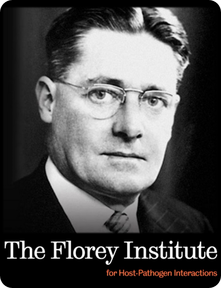
People living with HIV who are on treatment remain at much greater risk of pneumococcal disease. The reasons for this are unclear and progress in this area would greatly impact people living with HIV.
This study finds that, despite antiretroviral therapy to treat HIV, there is a persistent low-level of virus in the lung; because of this the immune system of these patients is weakened which allows other infections to take hold, like pneumococcal disease.
Here the lead author, clinician and Florey scientist; Dr Paul Collini answers a few questions about this study.
Dr Collini explains,
“We wanted to understand why people living with HIV, who are on treatment, remain at much greater risk of bacterial infections in the lung. Usually, resident immune cells called macrophages remove bacteria and foreign particles. In healthy individuals, these lung-cleaning specialists would deal with these bacteria before they cause disease, yet these processes are lacking in people living with HIV.
We extracted macrophage cells from volunteers, with and without HIV, and tested how well they killed bacteria in the lab. We found these lung-cleaning macrophages had lost some of their ability to kill the bacteria and that a low-level of HIV virus and viral protein was in-part to blame.
This study suggests lung health needs special attention in people living with HIV. In particular; we need to develop new strategies to reduce bacterial infections in the lung which can lead to pneumonia. The work also suggests a common pathways exist that lead to susceptibility to bacterial infections in patients living with HIV and those with other types of lung-related health issues, such as: chronic obstructive pulmonary disease (COPD).
Further work to characterise lung health in people living with HIV in the future and identifying ways to ‘fix’ lung macrophages are the next challenges for this work”
Read the full article here
Follow the official hashtag on twitter at #BSW18
